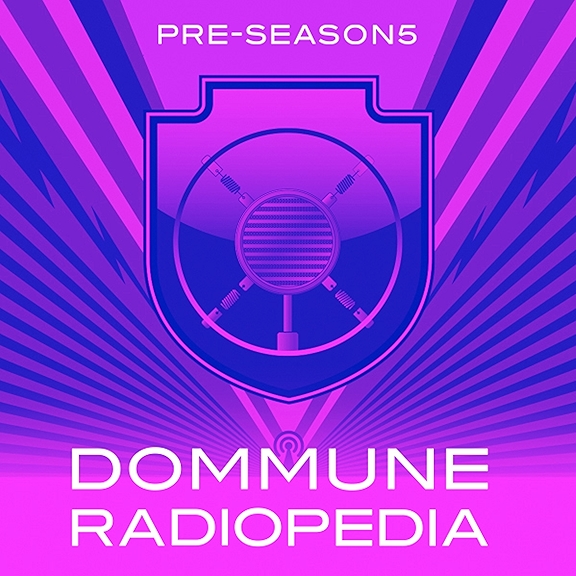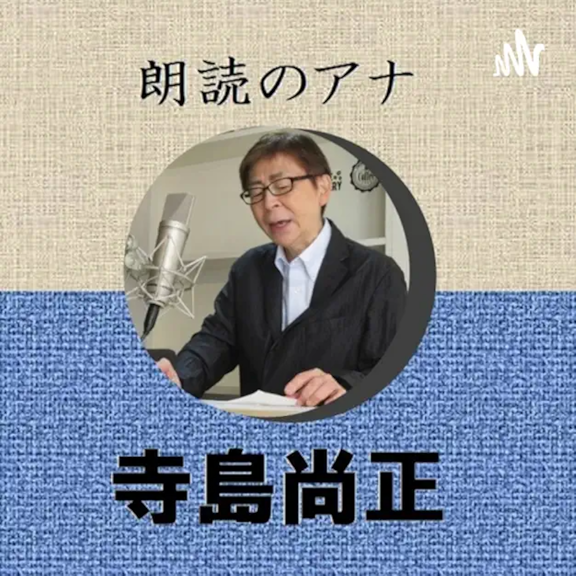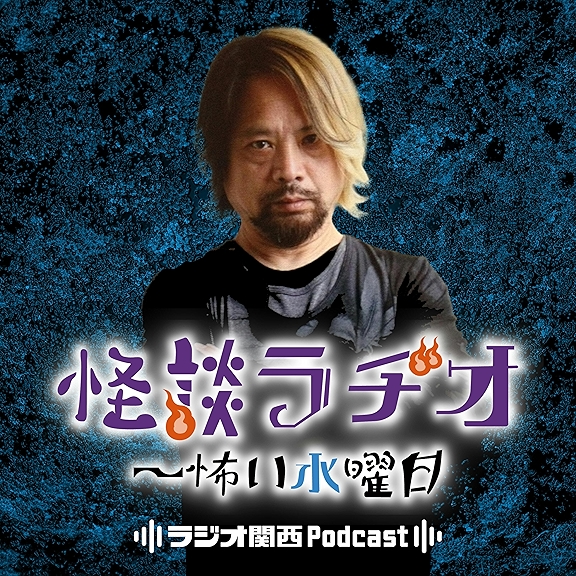
Jay is an Emmy-winning writer and producer known for shows like The Simpsons, Frasier, George Lopez, Malcolm In The Middle, and School of Rock.
Show Notes
Jay Kogen's IMDB: https://www.imdb.com/name/nm0463124/
Jay Kogen on Twitter: https://twitter.com/jaykogen
Jay Kogen on Instagram: https://www.instagram.com/jaykogen//
Michael's Online Screenwriting Course - https://michaeljamin.com/course
Free Screenwriting Lesson - https://michaeljamin.com/free
Join My Watchlist - https://michaeljamin.com/watchlist
Auto-Generated Transcripts
Jay Kogen:
Improv helps this to be able to risk. You don't know what's coming. You don't know what you're gonna do. And you commit to a character and you commit to an idea and you take it and see where it goes. It's no different than when you sit down to write a scene and you're about to commit to writing a scene. You might know where it's supposed to go, kind of. But this is what really, when it's time to commit to writing it,
Michael Jamin:
You're listening to screenwriters Need to Hear this with Michael Jam.
Hey everyone, it's Michael Jam. Welcome back to Screenwriters. Need to hear this today. I got a very special guest that none of you deserve to hear. You're just not good enough. But if you , But if you do wanna listen, pull over. If you're listening to your car, pull over. You gotta, because this is a big shot in the TV world. So with my guest, I have Jay Cogan and I have to, You gotta know who this guy, this guy's been around the block. Okay. He started at, I believe he started on the Tracy Allman show. He wrote on The Simpsons, the single guy, The Wrong Guy. This was back when he told his agent he would only do guy shows and everyone's like, This guy's out of his mind. But then he did Frazier. George Lopez. You did the first. I was in the other George Lopez.
You're the one people think I run a Lopez. Nah, not that Lopez or Malcolm in the Middle. And I'm leaving off half your credits. I'm just skimming through this. That class Happi divorced to Troop Wendell and Vinny Kirsty, which is where we worked together for 10 minutes. Cuz I was for the freelance episode that we did. But that was only 10, honestly. That was a real fast interaction. Then Ned and Stacy School of Rock. And then now you're doing, I guess oversharing and Renaissance. I wanna talk more about that and the new Punky Brewster. I don't know how that happened, I wanna know more about that. But, okay, so my guest is Jay Hogan and I gotta say, I never told you this, Chad, but my first job was on Just Shoe Me. And so I was a young baby writer and everyone that, on that staff, it was like Laan and Andy Gordon Con and Stephen Engel and you were one of these names that always came up. It was j Hogan said the funniest thing on Frazier. J Hogan did this. He came into the room, he did that and you were on, Honestly, in my mind, you were like this mythical character. And even at the time I was like, I don't know if it's j Hogan or Jake Hogan. And I don't want to ask because I don't.
Jay Kogen:
No one does. No one knows. It's true. No one knows. It's too
Michael Jamin:
Bad. Just ask. True
Jay Kogen:
. I'm still mythical. By the way, just so you know, you're still, I may or may not be real
Michael Jamin:
Mythical. Right? Mythical, Okay.
Jay Kogen:
Yeah. Now you said I'm mythical. I don't know. So you don't know whether I'm real or not. So
Michael Jamin:
I don't know. I don't wanna find out.
Jay Kogen:
I dunno.
Michael Jamin:
But we'll get to the bottom of this. People
Jay Kogen:
Who are driving, who pulled over, thank you for pulling over , I appreciate it. I hope you're safe. Put your hazards on.
Michael Jamin:
I So Jay, I got a million questions for you, but I guess let's start with the beginning. Everyone wants to know, how did you break in to Hollywood?
Jay Kogen:
Oh, it was a really rough ride, man. My dad was a writer producer, and I asked him to introduce me to some of his friends,
Michael Jamin:
. And let's talk about your dad. And
Jay Kogen:
I took it from there.
Michael Jamin:
But he wrote, and he wrote on a bunch of shows like Mary Tyler Moore show. What else did you
Jay Kogen:
Write on? He did, he read, he wrote a Mary Tyler Moore, I believe. He wrote a Mash, he wrote A New Heart and The New Heart Show, Bob Newhart Show and Newhart, he wrote on The Covert Show and the Dean Martin Show and the Jim Davis show and the Donny Marie Show. And he worked on Empty Nest and he worked on a million shows and wrote one shitty movie,
Michael Jamin:
Did
Jay Kogen:
Do it. It's called a soupy sales movie called Birds Do It. And my father was telling me that he can't bear to watch it . He hasn't seen it since 19 cause
Michael Jamin:
Rewritten. Cause Soki re rewrote
Jay Kogen:
It. No, he wrote it completely. No, it's his fault. He's saying he's, it's horrible and it's his fault.
Michael Jamin:
But you grew up around it. So I thought you were from Brooklyn, but you grew,
Jay Kogen:
I was born in Brooklyn and my dad moved from Brooklyn. He was working on the Tonight Show with Johnny Carson. And he moved out from Brooklyn to come work on the Dean Martin Show in 1968. Jesus. And that was my first experience on a sound stage, was on the Dean Martin Show on a Christmas episode. And it said, Ah, this looks like a fun job. Little did I know that writing is not a fun job. Writing is a really unfun job.
Michael Jamin:
People don't realize that. But what was it? So what was it growing around it? Did you talk shop with you? I don't know. Talk
Jay Kogen:
About I, my talking shop was gonna be limited . But even when
Michael Jamin:
You got older, did he tell you how to write a script?
Jay Kogen:
No. I mean, here's the thing. You grew up in a family that I'm sure was a funny family. No question if you're funny. You grew up in a funny family. My father,
Michael Jamin:
My dad invented comedy , he told me he made it up.
Jay Kogen:
So my father and mother are funny and if I try to make a joke at the table and get them to laugh, it was a great victory. So you'd hone your skills to make people laugh at the dinner table or on the living room couch. And that's kind of your writer's room training. And that's how you sort become the jokey guy in high school or junior high and become the jokey guy. So jokes, jokes were stock and trade in my house and my way to win my father's affection. So I tried to get good at it,
Michael Jamin:
But you still had to learn story structure, you had to write a script.
Jay Kogen:
Well that sucked. It took me years to do that because I was done. I had money. Most writers, we had jokes, but we didn't really understand story structure at all. We thought we knew it was funny and we thought, oh, just put funny stuff down and that'll be enough and that is way wrong. But that's what I thought. And I wrote some spec scripts and handed them to my dad and he said, This is terrible. Become a lawyer. He would say, Do not try to become a writer. This is awful. I wrote with some successful writers today who I work with in school. The Billy Ray who was at Academy Award and nominated writer and Robbie Fox and mm-hmm , Wally Wolodarsky became my partner at The Simpsons and Tracy Ownership. And we wrote all the time. And my father would read these scripts and go, These are terrible.
Do not get into the business. And so eventually I started working on PAing, on TV shows, getting people delivering scripts at three in the morning and getting people lunches, . And if I got it wrong, they'd scream at me and mm-hmm , all that kind of stuff. But I would learn, sit in the writer's room and watch them work out stories and figure out how they did stories. So that process was really enlightening. And so my partner and I, I tried to write a script and we wrote a script with a, it's for it's Gary Channeling show. Mm-hmm worked out one of their stories, which were always strange. And we did that. They kinda liked the script but they didn't buy it. And then we wrote another one and they didn't buy that. But then that became a sample that we got a job at the Tracy Allman Show from. And that's how it worked. And at the Tracy Allman show, under Heidi Pearlman and Jim Brooks and Sam Simon and Jerry Bellson, I started to learn that drama had a big part in comedy. And so there wasn't just jokes, it was jokes and story and characters that you cared about and situations that had impact and stakes and all those kind of things that you know about when you're a kid. But you ignore it and go like that. What's funny?
Michael Jamin:
Yeah. Right. It's so funny cuz I talk about this all the time. I wanna say you're gonna confirm, I guess hopefully. Or maybe I'm just an old blowhard and I just sound like an old frank. But I have a feeling you're gonna confirm a lot of stuff that I say. Cause I'm always like, no, the story's the most important thing. Jokes cut. You can always interchange the jokes. And people don't quite understand that when
Jay Kogen:
You can be a blow heart and also be right. So , those two things are not incongruous. But yes I will. When I talk to writers, I say that the story is first, character is second and jokes are third that you need the story is the hardest thing. Breaking a story is in writing is the hardest thing. Breaking a story, breaking it, making it sure that it pops, making sure that we're not going down stupid roads. That's the hardest thing. Everything else, the jokes are the easiest thing honestly. And the most replaceable thing, you don't like a joke, we'll cut it out and put a new joke in a character as they're very important. But sometimes you write something you realize, oh I have two characters that are the exact same person, and I, I'm gonna condense them into one person. Or I have characters doing the same, serving the same purpose in the story. And that's not a good idea. And so the story has to come first and that's always the most difficult thing. I always recommend to all writers, , outline your shit. Outline what you're gonna do before you're write. Show the outline to somebody, , get feedback on it before you waste your time writing a script on a story that's not gonna work.
Michael Jamin:
So that that's exactly right. I have to wanna bring this up cause I don't wanna forget this, but cuz my partner and I came in, we wrote, we did a freelance on the Kew Show, which we were on . And I have to say it was one of the most enjoyable experiences cuz it was like the last time, I mean I want to hear your thoughts on this. It was the last time I really was in a writer's room full of writers who had more experience than me because now it seems like I'm the old guy in the room now I'm the veteran guy and I really enjoyed working. You
Jay Kogen:
Made that in your brand, you were now that's your brand, you the experience guy . Yeah.
Michael Jamin:
But it was so much fun cuz you get to hear other people's stories, you get to hear their wisdom. There was so many heavy hitters in that room.
Jay Kogen:
Yeah, that was a fun room. I mean I've had a lot of fun rooms. The rooms are still fun when I go and do them. So like and am the oldest guy in the room now maybe, but I'm not sure sometimes. Depends on the show. But I've certainly been around a long, long time. So I'm going on, it'll be 40 years soon. That's a long time.
Michael Jamin:
Yeah, it is a long time. Yeah. So what do you accredit your longevity to? Is it you're getting your last three jobs basically?
Jay Kogen:
Well, the same way I got my first three jobs. It's sort of praying, meeting the right people, saying the right thing, wandering into a stupid situation that you didn't know about. And suddenly they have job so not organized. And so this, they're these jobs and you should, you're going to audition for these jobs and this is how it's a much more hazardous, haphazard. There's a show here and they may need somebody and you should be developing something here and you have a million irons in the fire and we'll see what happens.
Michael Jamin:
So you're constantly hustling. So it's not like your agents just setting this up, Oh hey, they wanna hire someone that you fit the bill. Right? I mean it's not as easy
Jay Kogen:
As that. No, rarely that rarely happens. And sometimes it does. But I mean honestly demographically, I'm not the key kind of person that they're looking for right now. . And there's a million reasons for that. I mean we should talk about that. There's a need, There has been a desperate need to make the playing field equal to all people from all different backgrounds and for many, many years, sort of Jewish white guys,
Had a preference. So we're now the guy like me, Brooklyn Jewish, Brooklyn Encino Jewish guy is, there's a dime a dozen, there's a lot of us . And then there's a brand new writers coming from different areas of experience and worlds and different backgrounds and more women and more people of, of uh, LGBTQ and more bipo people. And they all need a chance. They're sort starting to get a chance. And that means there's less room for people like you and me. And there's shorter pickups and there's smaller rooms. And so it, it's become a lot harder.
Michael Jamin:
It's a lot more hustle. And so you're also developing, how are you going about developing? Is it your own ideas or what are you doing?
Jay Kogen:
Some are my own ideas, some are ideas that I have with other people that I meet and I think, oh that's a good idea. Let's see if I can fix that. There's a pilot we're working on called Oversharing that's based on a play that I saw at UCB about a year and a half ago. And so we took the characters and the lifestyle of the characters in the play. The actors were also the writers. So I went, worked with these two women in their late twenties about what it means you to
Michael Jamin:
Be. So you approach them, you approach them, you say, Hey, I wanna develop your show.
Jay Kogen:
Yeah. Yes. With the help of Naomi Odenkirk, who is a manager, not my manager, but had called me in to, had seen this and I wanted to work with her and she said this is a good thing. So she matched me with these people and we've been working on this together for a while. And now we wrote a pilot and we're sort of seeing where it goes.
Michael Jamin:
So, Okay. That's interesting cuz sometimes people, you write the pilot first you go out with a pitch but you decided to write it first.
Jay Kogen:
Well here's the thing, we had a couple different things going on. The writers who were the actresses who did this didn't have writing samples, but they wanted to be part of the show. So to prove that they are able to write, they wrote, so this is their first episode and they'd like to be in it too, but maybe we'll sell it without them in it. But this is to prove proof of concept. Here's this thing, we may not use it to sell the show, we may,
Michael Jamin:
And you kind of just oversaw it. You didn't help with the writing, you just directed them a little bit or no
Jay Kogen:
. Well we pitched out the story together. I taught them kind of how the story structure's gonna work and and bring their play into a series. That whole transfer from interesting series, I guess I would get it developed by credit, something like that. But I didn't write the script. I helped rewrite the script, but I was involved heavily in the creation of it. So mean, my goal in this kind of thing is not to put my stamp on it. My goal is to take their world, their idea and bring it to life. And so the second I'm of putting my 50 year old guy brand on her, their 20 something life, it's gonna get ruined. So I just have to sit back and appreciate the world they're creating and then give my input here or there about maybe steering in certain directions and maybe this is what makes it fun of your story and reminding them what their goal was and who their characters were. Sometimes you'd lose that track of that.
Michael Jamin:
So how do you feel young writers have changed now? How are they different now than in attitude and preparedness and
Jay Kogen:
Everything? So much dumber.
Michael Jamin:
So much dumber. ,
Jay Kogen:
They're the same. I honestly feel like they're exactly the same. Different, The writer's rooms are different. What we're allowed to say and how we're allowed to behave is different. Yeah, I'm not going to say it's better or worse. It's just different. In the old days, we could make fun of each other. . And I was famous for doing room jokes. I did jokes, a lot of jokes in a writer's room. Sometimes people would say things and I would die. Sometimes people would say things and I would run out of the room so that you could see me in the window and just keep on running. And if my car was in the visual aspect of when I would get in my car and drive away, I would do a lot of jokes. I would get physically ill at something that if I heard two people were kissing or something, like I would do jokes, , all of which was based on the idea that they know I'm joking.
So I could make a joke about somebody who knew I was joking. I could make a joke about them or what they were wearing that day and they knew that I love them and I'm joking, right? That's not okay anymore. You cannot depend on people to understand your intention or even give a shit about your intention. If there's a joke at their expense, you're in trouble. So you don't joke about stuff anymore at anyone else's expense. We don't joke about their background, we don't joke about where they're from or who they anything about their lives. We keep it nice and businesslike and then we just try to do the work. So writer's rooms have become, ultimately for me, a lot less fun and a lot more, I wanna make a joke and I'm like, I can't do it cause I don't want to offend people, but I also don't want to get in trouble.
And I think younger people can be offended. I'm, I'm working with some college kids now. I was teaching a class at USC and as a college professor, you have to really be on your, you're, this is not a writer's room, this is a school. But those writing students I'm working with all seem like they're making jokes all the time about all things. So they're more like I was when I was a young person, but I'm not making those jokes because I'm a professor. So I, I'm kind stay out of the realm of anything close to offensive or dirty or strange or anything.
Michael Jamin:
That's interesting. I didn't, didn't know, but
Jay Kogen:
There's insane, I just wanna make jokes.
Michael Jamin:
I didn't know you were teaching at usc. How long have you been doing that?
Jay Kogen:
Half a minute. Oh, I had John Bowman, the writer, John Bowman was a friend of mine and he was teaching a sketch writing class and he unexpectedly died, which is good cuz when you expect to die, all
Michael Jamin:
Doesn't worse worth.
Jay Kogen:
So then they asked me to step in to fill, fulfill, fill it, the class that he was teaching. So I started doing that.
Michael Jamin:
Right. Wow. And I also know you, I didn't, But you're also doing, you do improv.
Jay Kogen:
Oh yeah, no, I've been doing it for my whole life. I started at the ground when I started in show business, my goal was to not be a writer. My goal was cause writing seemed, I watched my dad writing is lonely, it's quiet, it's intensive. , it seemed hard. I like working with people, I like having jokes, having good times. So I started being an actor and a standup comedian. And then when I was 16 I was, when I was a kid, I was an actor. When I was 16, I was still trying to be an actor and doing standup. And then I transitioned over to the Groundlings, which was a much better atmosphere to be part of than the improv or the comedy store. And I sort of figured out what character and story was based on that. That helped a lot. By the way, I do recommend that if you, you're a writer to take acting courses and take improv courses because you'll learn a shit ton of what you need to know. about being a writer. The other thing you need to do is take editing courses. If you can take a course in editing movies or editing TV shows, you'll learn what's important to keep in your script and what's not important to keep in your script. I didn't know a thing until I started editing.
Michael Jamin:
Do you have, But anyway, is there any goal, Is there a goal for you for, Are you just getting up there and performing is,
Jay Kogen:
What do you mean?
Michael Jamin:
Is there an end to it?
Jay Kogen:
You want, I'm hoping people throw roses at me. That's
Michael Jamin:
My goal. But I don't know. Do you want to turn it into something or do you just enjoy the process of getting up there and performing?
Jay Kogen:
It's improv is cult a cultish comedy religion. So you do it because you learn the skill. It's like if I was a Glassblower and suddenly I learned how to make little glass animals when I was 16 and I still know how to do it and I like it. So I'm doing improv then the goal is to stay loose, keep your mind fresh. It helps improv helps this to be able to risk. You don't know what's coming. You don't know what you're gonna do. And you commit to a character and you commit to an idea and you take it and see where it goes. It's no different than when you sit down to write a scene and you're about to commit to writing a scene. You might know where it's supposed to go, kind of. But this is what really, when it's time to commit to writing it and there's a blank piece of paper and you have to be the character who says this other thing, then turn your mind to the other character that says this thing and what are they thinking and how are they acting and how are you being, and what does the scene look like and how do you fill the space with physicality and all the things.
These are the things that you learn from improv and these are the things I still love doing it because it keeps me fresh and reminds me of that. It's fun to create.
Michael Jamin:
And how often do you go up?
Jay Kogen:
The group that I'm working with now go the Transformers. We go up about once a month and then I'm also an improv whore. And I will appear with any other improv group that asks me. Usually the Groundlings has a show called Crazy Uncle Joe and I do that sometimes. Or cooking with gas or sometimes I guess with another group. So it's just fun to work with different people in
Michael Jamin:
When you do that though, I mean, I know it's improv, but is there any kind of rehearsal with these people? Or are you up there for the first time with these people you don't even know.
Jay Kogen:
Again, it's something you've learned. You started by taking courses and saying, okay, this is how you do it. You agree , You know, pretend that you're stand up there and pretend that you're a bumblebee. Right. Okay. What would a bumblebee do? Bumblebee might go from flower to flower. A bumblebee might pollinate a, you just put your mind into the thing. So you slowly work up from the beginnings of improv, which is just agreeing. Then you're in a scene with another bumblebee and now you have to figure out what does one bumblebee want and what does the other bumblebee want in the scene. And you're a skill you develop to listen to what other people are saying, agree with it, add information, have an attitude, have a goal, and don't talk over each other and be physicalize the scene. These are things that you learn how to do over time and if you get good at it, you can do it forever.
Michael Jamin:
Hey, it's Michael Jamin. If you like my videos and you want me to email them to you for free, join my watch list. Every Friday I send out my top three videos. These are for writers, actors, creative types. You can unsubscribe whenever you want. I'm not gonna spam you and
Michael Jamin:
It's absolutely free. Just go to michael jamin.com/watchlist. All right. So yeah, you were working, you knew , Tom Maxwell, and you're gonna tell that story.
Jay Kogen:
All right. So yeah, Tom was the runner of director of the Groundlings when I was there, and he had a very distinctive laugh and very distinctive kind of from one of the Carolinas, I forget which one.
Michael Jamin:
Yeah, I think it was North. Yeah,
Jay Kogen:
North, I think so Carolina. And he was great audience, a great audience. He loved the laugh, was wonderful to have. And he's the guy I interviewed with to get into the Groundlings to start working at the school. And then I worked starting at 16, I started doing the school and didn't get into the Groundlings until I was 18.
Michael Jamin:
Oh, interesting. Wow. So you really did the whole training there and that, Wow. Yeah,
Jay Kogen:
And there was the training we,
Michael Jamin:
I'm sure it was, I actually took a, So Tom was a writer, I think season three of just shooting me. And then he went up co-running it in the later years. And I remember he came in the first day, This is how important improv is. It's like the first day we're breaking a story and I guess he was just showing off and he just starts acting out the scene and doing all the characters. And I was like, look at this guy. Go. And we were all just staring and the writers says, We're all just staring. And I shoot the writers, I was like, Dude, what are you doing? Type start typing because everything he's saying is going into the script.
Jay Kogen:
Well, I've seen a lot of writers do that. James Brooks, James L. Brooks is able to do that. Just pitch out a scene from top to bottom. I mean, it's amazing. It's not, it's downgrading it. It's amazing when people can do that. But yeah, when we were at The Simpsons, we would pitch in character, People would pitch as Homer, pitch as Marge. We were , we used the voice and we were that. So it trains you to sort of pitch a joke and risk having everyone hate it
Michael Jamin:
,
Jay Kogen:
And by being improv,
Michael Jamin:
But it's also when you pitch a joke and it bombs, at least then you improv a funny back, a backup to it.
Jay Kogen:
I guess you can save yourself by acknowledging the bomb or not acknowledging it. It depends on how late its sometimes. Yeah, sometimes there's just silence. . Right, Let's move on, let's go past
Michael Jamin:
It. Tom used to get very cranky around 8:00 PM I think is my bed. , you gotta work till midnight or whatever.
Jay Kogen:
Some people can't do the late nights.
Michael Jamin:
Yeah. Well so how do you go about, even other than working with these other actors, how do you go about developing shows? Do you have a process? What do you think?
Jay Kogen:
Well, anything that inspires you, and then you check it out with your people and say, Is there a show like this already in development? Or do we think that we can attach good people to this thing? So have to figure out how to position it. You have an idea then how do you position it? Who's it for? Can you create auspices to join forces with you to make it a more powerful sale? When's the right time to sell it? All those kind of things go into the mix of that kind of stuff.
Michael Jamin:
Yeah. And so what do you usually try to team up with a producer? Is that what you, I mean?
Jay Kogen:
Right. This Oversharing project is now with Sharon Hogan's company called Merman Mer. So, so they, especially women's stories. And this is a women's story and it's like it's a good company when you're dealing with the story of women in their late twenties in the sort of dismal landscape of what life is like for them.
Michael Jamin:
. Right. That's so interesting. Yeah. And so, what was I gonna say about that?
Jay Kogen:
I have a show that I'm writing with that I'm helping some newer African American writers with, and we're trying to get Kenya Barris to sign on to be part of this thing. So he's a good auspices for that. And then I have a show about Jewish boys from Encino and Mel Brooks would No joking
Michael Jamin:
About it. Nope, that'd be great. Yeah, I worked with them. I worked with them on Glen Martin. You brought 'em in. I damn, I'm directing Mel Brooks. It was very intimidating.
Jay Kogen:
Now Mel Mels not intimidating, he just won't shut up. But ,
Michael Jamin:
It was still like, I'm telling him directions. Who might be telling Mel Brooks how to play the line? Well,
Jay Kogen:
If he didn't like, like your directions, he'd tell you
Michael Jamin:
,
Jay Kogen:
Yeah, I don't wanna do it. I'm gonna walk over here. Gonna,
Michael Jamin:
Yeah, there was definitely the case. I remember I like telling him, ask him to get him again. And he goes, No, no, you got it the first time. I'm like, Sounds good to me. .
Jay Kogen:
We worked with him on the Tracy Oman show and he had a million ideas about what he wanted his character to do and we was just like, Okay, go for it.
Michael Jamin:
Mel Brooks. Wow. Well, so wait, I had a thought, but
Jay Kogen:
To go back to your original question, how do you develop something? Call Reiner the great Carl Reiner speaking. Bob Brooks gave me advice and he said, Figure out the hill. You're standing on that only the vantage point that only you have and make a show about that. So interesting. Make it about your world or your point of view or your, something that's really on your mind that only you can see. And that was his advice. And I thought that was good advice.
Michael Jamin:
And we hear that a lot. It's like, why are you the only people to write this show? And then you gotta think of a reason.
Jay Kogen:
You have to lie and say, Well , this happened to me or this is my thing. But obviously when you're a writer, you're bringing something that's personal to you. It doesn't have to experienced the thing to have experienced the emotion that the thing is connected to. Sometimes the show is about love or sometimes the show is about abandonment or sometimes the show is about lack of credibility or the show is about ego and the specifics of the show are not necessarily the specifics of your life, but that's something that you're very aware of and something that's meaningful to you. And if it's meaningful to you, then it's gonna have a resonance that's gonna count. And that's what I try to do when I write something. It's because I relate to it and I feel it and I feel like there's a truth in it. Right.
Michael Jamin:
These are all good words. And how did you, let's say a show, the remake for Punky Brewster, how did you get involved in that? I'm always wondering how that
Jay Kogen:
Happens. My friends, Steve and Jim Armita had created it and produced it and I'd worked with them on a show called School of Rock and they hired me to help them. I mean that was it a friend a I not, I didn't know anything about punk. Brewster hadn't watched it. Oh, I didn't, no know much about it, but I got to know about it. And so then we tried to make, it had been the development for many, many years. Universal was trying to use their own properties and make something of it. And so that's what happened. It sort of came together over the course of five years.
Michael Jamin:
Wow. See it takes how long it takes.
Jay Kogen:
Yeah.
Michael Jamin:
And now people, I get this question a lot. I don't know if you have a good answer for it, but do you have a preference to do single camera, multi camera animation?
Jay Kogen:
Well, I think it's harder to sell a single camera show. Everybody wants to buy. Every network says they wanna buy a single camera show, but then they don't always buy mean, excuse me, Every network wants to buy, say they wanna buy a multi camera show because it's cheaper, but they always wind up buying single camera shows because they're cooler. And so I'd rather sell the show that gets made. And so right now I'm interested in selling single camera shows. However, I love Multicam. I do like the process, I know it. But I watch many Multicam shows going like, Oh that's great. Tv I think the single camera shows are better cuz they're more like movies. You don't have to lean on jokes quite so much. It's more about the story. If you tell the filmically there's no laugh track. So it's just funny is, and it's different experience. I don't know you when the Multicam, if it will ever pop back as a main force. But it's, see
Michael Jamin:
It'd be nice. Now you, I didn't look, Have you done any direction directing?
Jay Kogen:
Oh yeah, I love directing.
Michael Jamin:
Oh you do?
Jay Kogen:
Okay. It, I would give it up to just direct
Michael Jamin:
Really What You like it that much. A lot of guys, guys haven't given up to. Why do you like that more than writing?
Jay Kogen:
It's collaborative. I'm not alone in a room, I'm given, I have material sometimes I've written the material so I know the intention. But I like working with cameras. I like working with the actors. I'm an actor, I'm an old actor. So I like acting and I like actors and I like working with them and figuring out the big picture and figuring out, making sure that all the pieces in the editing room are there. Having edited many shows now, knowing, okay, we need this reaction and that reaction and we get, this is the joke, this joke needs to be close or this joke needs to be wide or let's have a choice. Those kind of things are great. And when I've directed film, single camera, film action things, they've been great. I love using the camera, I love using stunts, I love using and anything that I can envision. I love storyboarding stuff and making them happen.
Michael Jamin:
Who do you feel you've learned the most from? What directors have taught you the most?
Jay Kogen:
Hitchcock, I mean,
Michael Jamin:
. Sit. Come guys. I hate say,
Jay Kogen:
I mean they're all great. I've learned from every single director we've worked from, I've been lucky enough to work with Jim Burrows and I've been lucky enough to work with,
I mean there's Victor Gonzalez and I've been working just all these directors who know what they're doing. A guy named Jonathan Judge who I work with , who'd really just knows what he's doing. He knows the feeling, he knows how to keep the set alive and people happy. And there's a lot to do when you're director and what and when you're TV director, you're really trying to fulfill the vision of the producers , which is great. And when I direct even on shows that I've executive producing, I'm asking my other writers, Do I have it? Are you good? Are we satisfied? I'm not just saying I got it and I want everybody's opinion. I want to change things if people don't have it. Cause we are only here on the set this moment. I wanna get everything we need to get. And I like being collaborative and I like hearing notes. Unlike when




















